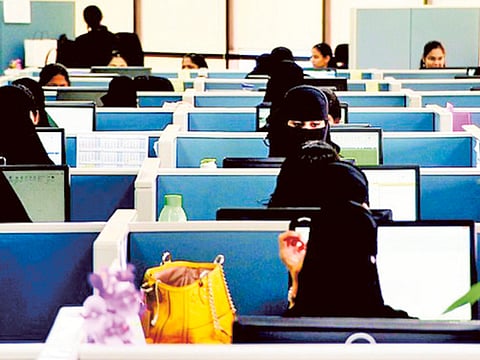Smoothing out women’s path into workplaces
The entire transformation process requires deep fixes at multiple levels

We know that empowering women equally with men at the workplace leads to business success, greater creativity, greater relevance, employee retention and productivity. What stands in the way of this obvious choice is equal opportunity.
And what stands in the way of equal opportunity are the myths that are perpetuated by society and reinforced through generations. Here are four interventions to create equal opportunity and break the myths:
Fix the system
Many conversations start with the premise that we need to “fix the women” — women are not ambitious enough, confident enough, do not show the right leadership skills. It is the pervasive narrative of “lack” — especially around confidence and ambition that is damaging to women.
What we instead need to do is the fix the system — which is the definition of leadership, policies, career and equal opportunity which is not restricted by bias.
Externally as well, we must make a deliberate effort to empower women to encourage them and their voice as we develop content and communication for them. Women must have a say in the stories we tell them, and we must use both our influence and our intent to make this happen.
At P&G, we are playing a significant role in shifting this narrative by leveraging the scale of our advertising voice to spark change and remove bias.
Men as allies
Gender equality is not only a women’s prerogative. Men have an equal role to play to enabling gender equality. In many countries, social standards and norms of patriarchy still exist, where men are more privileged than women.
Personally, throughout my life, I have learnt that these can be changed if men took the progressive route to reinforce inclusion. Empowering women in leadership positions ensures future economies will be dynamic and inclusive — offering equal opportunity to everyone.
Through our partnership with Catalyst’s MARC (Men Advocating Real Change) programme, we are helping both men and women understand privilege and bias to build more inclusive leaders. It is a powerful programme that has reaped real results in bringing about a more equal workplace in various markets starting with the key role that men play as allies.
Male advocacy for female leadership is essential and valuable. In my own experience, men in leadership positions have played an important role in my career, sponsoring me and advocating for my growth. There are plenty of proud male feminists, but to make equality a reality we need to draw more into the conversation
Creating deliberate opportunities for women’s economic empowerment
We are deliberate about intentional talent management to ensure we have gender equal slates for all roles. In our regional headquarters in UAE, 46 per cent of our employees are women and we hire equally across both genders. In Saudi — 57 per cent of our new hires are women.
Importantly, we do not restrict ourselves to equal opportunity within P&G, we are leveraging our scale to deliberately work with women owned businesses outside too. We intend to spend $150 million over the next three years on deliberately working with women owned businesses across Asia-Pacific, the Middle East Africa.
An example is what we did in Saudi Arabia which demonstrates how important it is for companies to walk the talk. As you are aware Saudi Arabia is at the cusp of transformation. This generation of Saudi women are coming into their own, and the first to challenge expectations in careers, at home.
It is important for us to engage and to remember that gender equality and the empowerment of female leadership is not just a women’s issue, it’s a human issue that impacts all of us, because at the end of the day, it is smart to “see equal”.
- Sonali Dhawan is Vice-President at P&G Femcare, Asia Pacific Middle East and Africa.
Sign up for the Daily Briefing
Get the latest news and updates straight to your inbox






